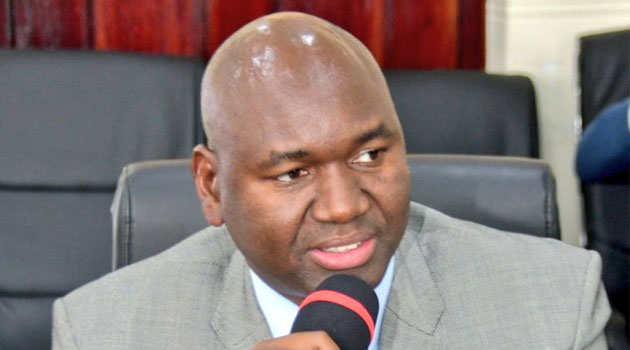
PS Bitok Says Over 900,000 Maisha Cards Issued so far » Capital News
NAIROBI, Kenya, Jul 22 – Interior Principal Secretary Julius Bitok says over 900,000 Maisha Cards have been issued so far.
In a statement addressing concerns raised by activists regarding the legalities of the Maisha Card, Bitok defended its compliance with international standards.
According to Bitok, the National Registration Bureau (NRB) has issued 972,630 Maisha cards (531,329 new applications and 441,301 duplicates).
He further outlined the reasons for introducing the Maisha Ecosystem, emphasizing its compliance with regional and international best practices for personal registration documents.
“Compliance with best practices: The Maisha ecosystem complies with regional and international best practices on the standardization of essential features of personal registration documents including the National ID Card,” he stated.
The system also meets International Civil Aviation Organization (ICAO) requirements for cross-border identification documents, enhances security features in the National ID card, introduces digital ID features, and consolidates multiple databases into an expert national register.
The PS highlighted that the stakeholder engagement played a crucial role in the introduction of the Maisha Card, with at least 820 public and stakeholder engagements conducted before its implementation.
“The introduction of Maisha Card was preceded by at least 820 public and stakeholder engagements, including civil society, religious leaders, the private sector, the media, and the public,” he explained.
According to Bitok, the card features a machine-readable microchip with relevant security features and personal details, with a shelf life of up to ten years from the issuance date.
Regarding card renewal, Bitok highlighted that holders will need to renew their National ID cards every ten years.
“This is a standard practice in countries such as Uganda, Tanzania, Nigeria, Senegal, and France, among others that have implemented an ID with a microchip,” he added.
However, applicants seeking renewal will not be required to provide fresh biometrics but will need to retake passport-sized photos due to potential changes in facial features over time.
The Maisha Card and its supporting infrastructure, including the Unique Personal Identifier (Maisha Number), digital ID, and the National Integrated Personal Registration System (Maisha Database), which were introduced in November 2023, facilitates more efficient validation of personal identification data by public and private institutions, thereby simplifying citizens’ access to services.
